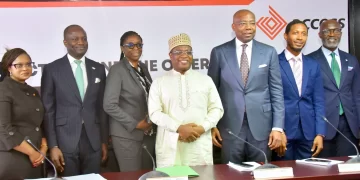The African Development Bank (AfDB) and the World Bank have pledged a combined $40 billion to support the Mission 300 initiative, aiming to provide electricity to 300 million Africans by 2030. This commitment was announced during the Mission 300 Africa Energy Summit in Dar es Salaam, Tanzania, where Akinwumi Adesina, President of AfDB, highlighted the importance of this collaborative effort in tackling energy poverty across the continent.
AfDB is contributing $18.2 billion, while the World Bank is offering $22 billion. Additional support is coming from key partners such as the Islamic Development Bank, the Asian Infrastructure Investment Bank, and the OPEC Fund. Adesina emphasized that expanding energy access is not only a matter of improving living conditions but also critical for Africa’s economic growth, as lack of electricity is costing the continent 2-4% of its GDP.
Mission 300 is part of AfDB’s broader initiatives to ensure energy access for all. Another key project is the Desert to Fire initiative, which aims to generate 10,000 megawatts of solar power for 11 African countries. Since the launch of AfDB’s New Deal on Energy for Africa in 2016, the proportion of Africans with access to electricity has risen from 39% to 52%.
World Bank President, Ajay Banga, also addressed the summit, stressing the importance of collaboration between governments, businesses, and development banks. He revealed that the World Bank’s commitment to Mission 300 would be directed over the next six years, with the goal of eliminating regulatory barriers and attracting private sector investments.
Other global partners, including the Rockefeller Foundation, are also playing a significant role in this effort. Rajiv Shah, President of the Rockefeller Foundation, emphasized that Mission 300 represents a critical step toward not only powering Africa but empowering its people to achieve their dreams, particularly by creating jobs for the continent’s rapidly growing youth population.
Together, these initiatives are poised to address Africa’s longstanding energy challenges and set the continent on a path toward sustainable economic development.
Credit: NAN (Text Excluding Headline)






















